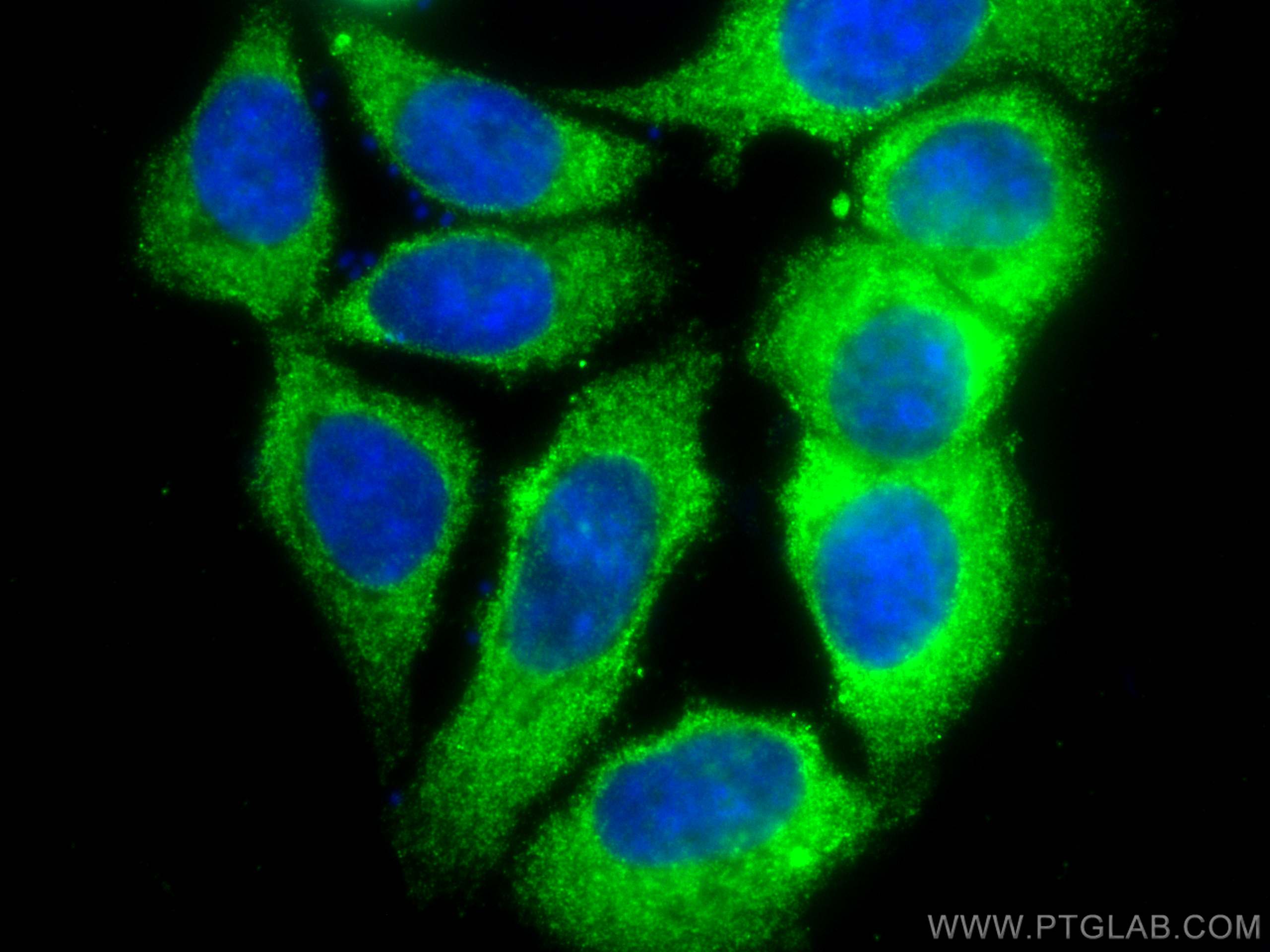Tested Applications
| Positive IF/ICC detected in | MCF-7 cells |
Recommended dilution
| Application | Dilution |
|---|---|
| Immunofluorescence (IF)/ICC | IF/ICC : 1:50-1:500 |
| It is recommended that this reagent should be titrated in each testing system to obtain optimal results. | |
| Sample-dependent, Check data in validation data gallery. | |
Product Information
CL488-66558 targets PLDN in IF/ICC applications and shows reactivity with Human, Mouse, Rat samples.
| Tested Reactivity | Human, Mouse, Rat |
| Host / Isotype | Mouse / IgG1 |
| Class | Monoclonal |
| Type | Antibody |
| Immunogen | PLDN fusion protein Ag18095 Predict reactive species |
| Full Name | pallidin homolog (mouse) |
| Calculated Molecular Weight | 23~24 kDa |
| Observed Molecular Weight | 26 kDa |
| GenBank Accession Number | BC004819 |
| Gene Symbol | PLDN |
| Gene ID (NCBI) | 26258 |
| RRID | AB_2934479 |
| Conjugate | CoraLite® Plus 488 Fluorescent Dye |
| Excitation/Emission Maxima Wavelengths | 493 nm / 522 nm |
| Form | Liquid |
| Purification Method | Protein G purification |
| UNIPROT ID | Q9UL45 |
| Storage Buffer | PBS with 50% glycerol, 0.05% Proclin300, 0.5% BSA , pH 7.3 |
| Storage Conditions | Store at -20°C. Avoid exposure to light. Stable for one year after shipment. Aliquoting is unnecessary for -20oC storage. |
Background Information
Pallidin, also named as PLDN and PA, is involved in the development of lysosome-related organelles, such as melanosomes and platelet-dense granules. It may play a role in intracellular vesicle trafficking, particularly in the vesicle-docking and fusion process. Pallidin interacts with syntaxin-12 which is a t-SNARE protein that mediates vesicle docking and fusion.
Protocols
| Product Specific Protocols | |
|---|---|
| IF protocol for CL Plus 488 PLDN antibody CL488-66558 | Download protocol |
| Standard Protocols | |
|---|---|
| Click here to view our Standard Protocols |



